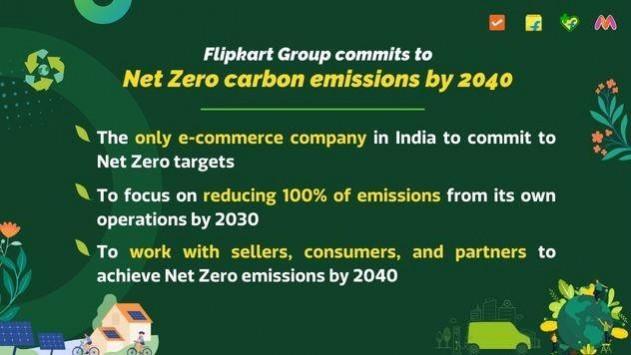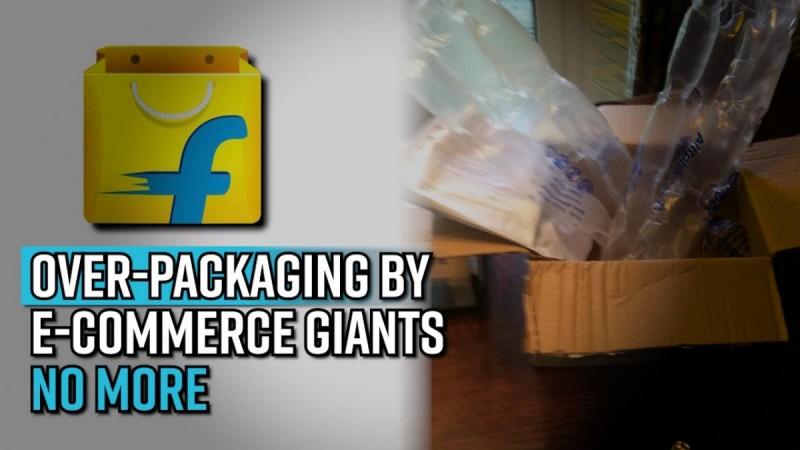India's road to the net-zero emission target is long, challenging and expensive. Even so, Prime Minister Narendra Modi has pledged a net-zero emission target by 2070. India's homegrown internet ecosystem, Flipkart, is setting an example for net-zero carbon emissions and leading by example. Flipkart Group announced on Thursday its pledge to decarbonise its own operations by 2030 and the larger value chain by 2040.
With this pledge, Flipkart becomes the first e-commerce company in India to commit to net-zero targets. It is also in line with the global Science-based Targets initiative (SBTi) of keeping the global temperature rise to below 1.5 degrees Celsius per the Paris Climate Agreement, a major step towards countering the effects of climate change by reducing carbon footprint.

We are proud to announce our commitment to Net Zero emissions by 2040. This commitment is a significant undertaking in our journey towards building a sustainable business, and we want to play our part in adopting a proactive approach to create shared value across the ecosystem. As part of our Net Zero efforts, our sustainability initiatives will include the larger ecosystem, comprising our sellers, customers, and brands, to bring about an industry-wide shift. We recognise the importance of working collaboratively to reduce climate impact and will continue to steer our efforts towards this commitment and to decarbonise the e-commerce value chain," Kalyan Krishnamurthy, Chief Executive Officer, Flipkart Group, said in a statement.
Flipkart's decarbonisation pathway
Flipkart Group has clearly defined its decarbonisation pathway by focusing on key areas of impact. In its own operations, it will increase energy efficiency at its corporate office, supply chain facilities and power its energy requirements through renewable sources such as solar.

For a larger impact, it has pledged to a responsible value chain, which it will achieve through electrification of logistics, incorporating renewable energy, environment-friendly packaging, waste management initiatives, responsible sourcing in business practices, the establishment of green infrastructure, and supplier engagement and seller education.
Flipkart Group said it will also foster industry partnerships to develop innovative solutions for creating a sustainable e-commerce model. Finally, it will drive consumer awareness and initiatives to support sustainable products while creating circular business models.
Flipkart's pledge in line with current practices

Although Flipkart has set an ambitious 2040 Net Zero carbon goal, it has been committed to the cause through various initiatives over the past years. For instance, it has already adopted large-scale electric vehicle use in its supply chain, eliminated single-use plastic packaging, introduced paper packaging through sustainable forest-derived materials, and development of warehousing infrastructure to reduce its carbon footprint.
For its efforts, Flipkart Group has already been recognised by World Business Council for Sustainable Development (WBCSD) and World Wide Fund for Nature (WWF); and has set an example for other major corporations in the country to follow its lead.









![BJP fields Tashi Gyalson for Ladakh; drops sitting MP [details]](https://data1.ibtimes.co.in/en/full/797185/bjp-fields-tashi-gyalson-ladakh-drops-sitting-mp-details.jpg?w=220&h=138)


